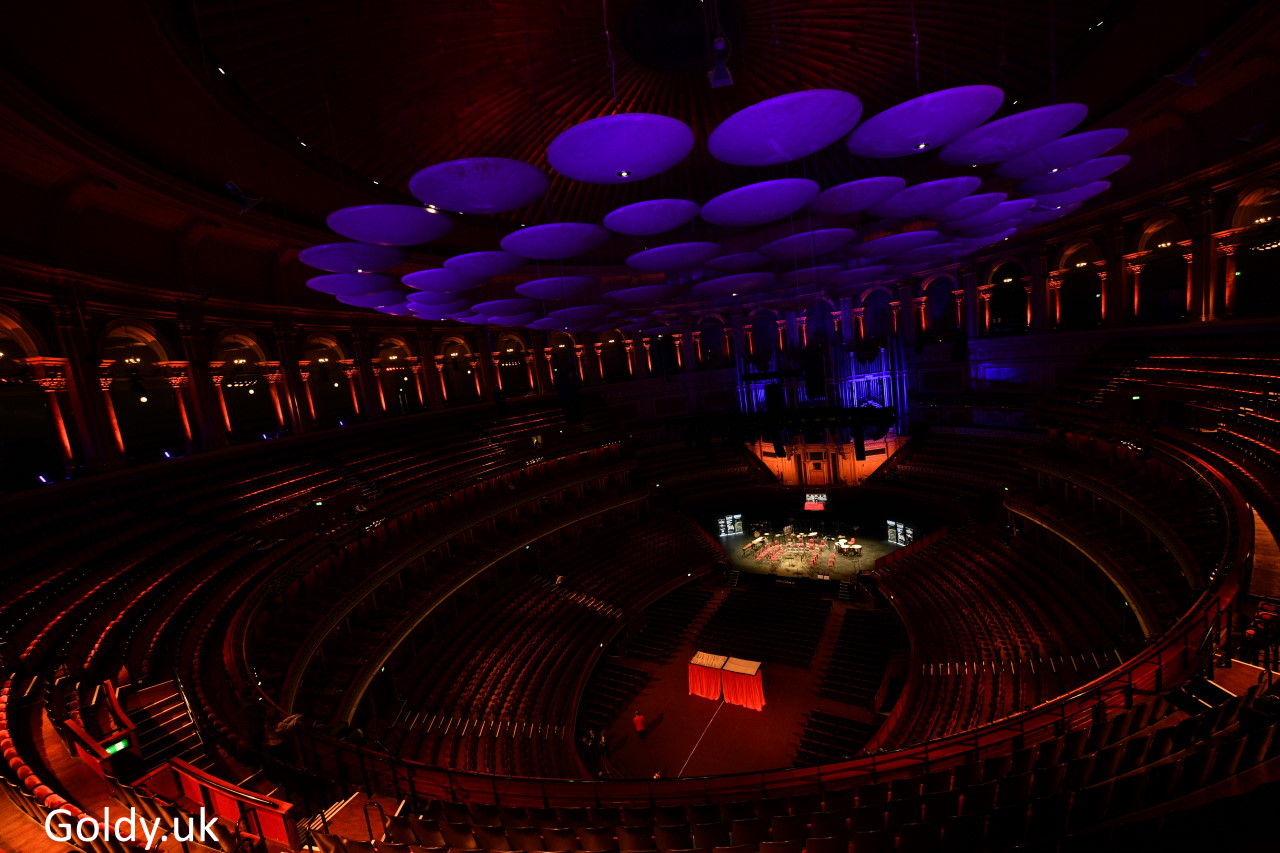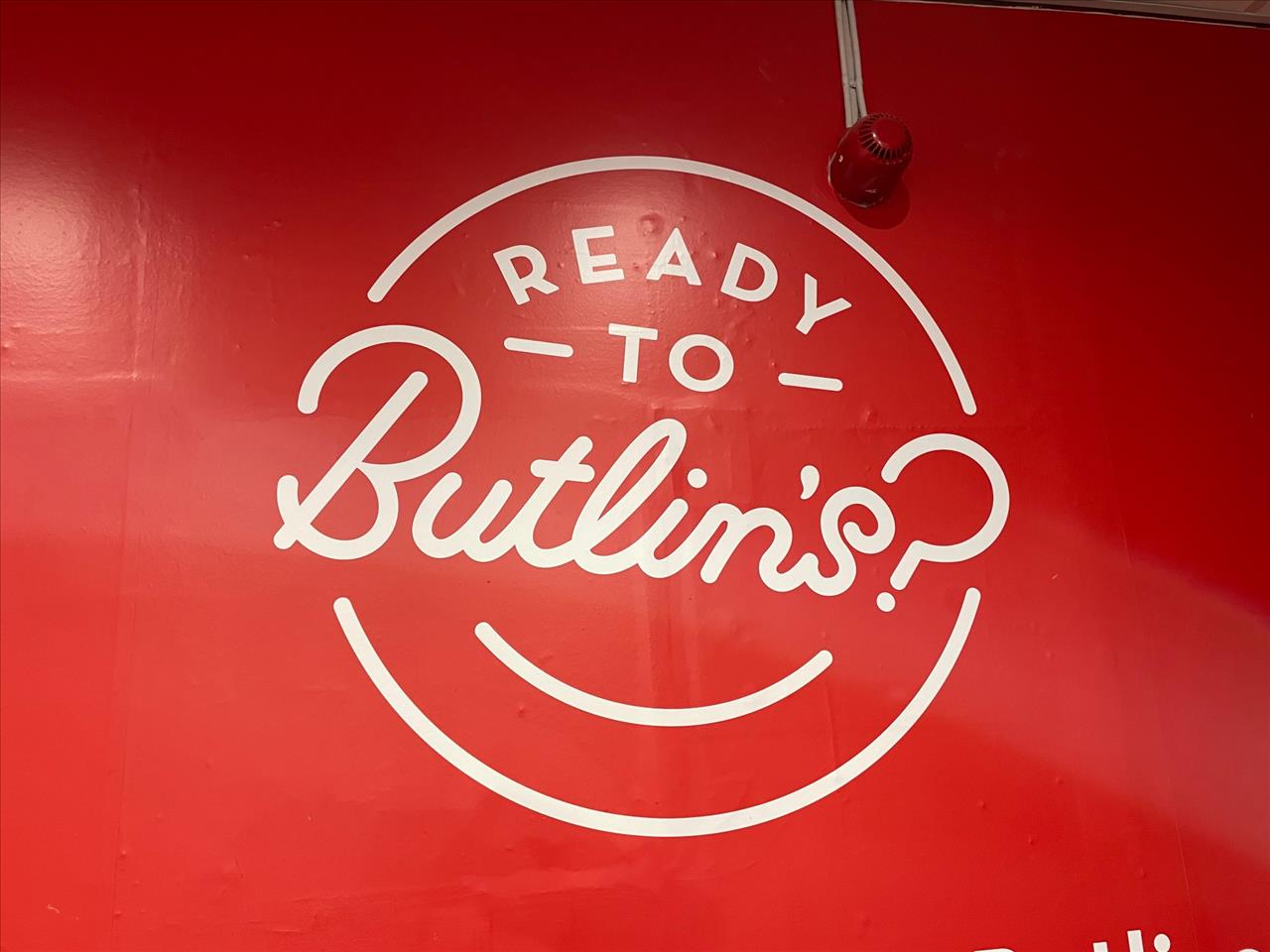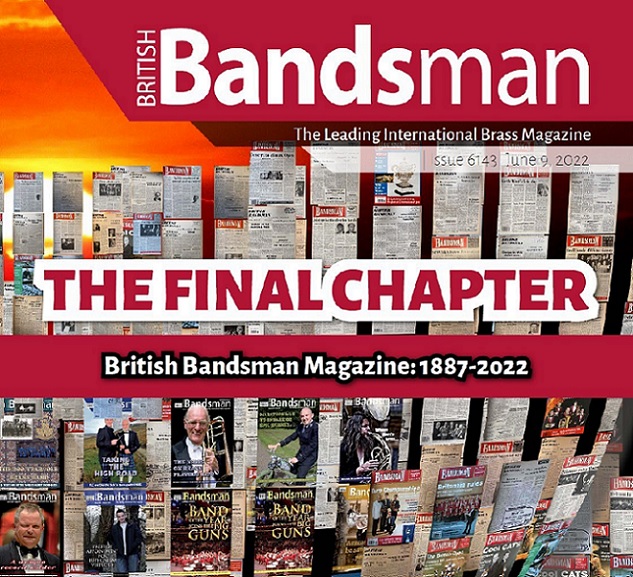
Rather like Ebenezer Scrooge in Dicken’s ‘Christmas Carol’, dreams about the past, present and future of the UK banding world can quickly turn into a nightmare.
As clocks chime midnight on the 31st December, 2025 heralds the last year of the first quarter of the 21st century. Given what has happened since 2001, you can’t help but feel pessimistic what the next 12 months, let alone the next 25 years will bring.
Jacob Marley
There may yet be a happy ending from the nocturnal lessons learnt, but you don’t need to be led by an apparition of Jacob Marley to show you that if things do not change then banding as we now know it in the UK could be looking at a future every bit as bleak as Tiny Tim.
Longing for a return to halcyon days past offers nothing but misplaced nostalgia, whilst the present has been filled by the results of empty rhetoric.
Longing for a return to halcyon days past offers nothing but misplaced nostalgia, whilst the present has been filled by the results of empty rhetoric.
Like politicians lacking the backbone to implement radical change to secure long-term sustainability, countless opportunities (usually from previous ‘lessons learnt’) have past us by – notably during Covid-19.

Take me by the hand...
We have repeatedly ignored the warnings – most recently outlined in pertinent speeches made by Edward Gregson and Gavin Higgins, and instead accepted meaningless platitudes as a measure of success from the likes of Darren Henley of Arts Council England (although he did later redeem himself somewhat by upgrading the funding of BBE).
Survival mode
Instead, we have remained wedded to a form of Darwinian contest survival mode – gaining schadenfreude succour over rivals in not becoming the latest entry in the banding obituary columns. Borrowing players has become endemic – used and abused in almost equal measure.
Instead, we have remained wedded to a form of Darwinian contest survival mode – gaining schadenfreude succour over rivals in not becoming the latest entry in the banding obituary columns.
It has played a major part in making the first quarter of the 21st century one of continued decline, the inexorable fall in numbers taking part in the Regional Championships providing the starkest barometer reading of our health.
Barometer
At the turn of the Millenium 573 bands took to ‘Area’ stages – 87 in the Championship Section and 162 in the Fourth. By Covid-19, that figure was already down to under 500. Despite the incredible resilience that followed, that figure is now 476.
In 2019 there were 88 Championships bands and 106 in the Fourth Section. This year there were 86 in both. The foundations continue to erode beneath our feet.
In 2019 there were 88 Championships bands and 106 in the Fourth Section. This year there were 86 in both. The foundations continue to erode beneath our feet.

Too many contests are being played out to empty halls
Education cuts
There is a substantive argument that a lack of investment in music education (especially in peripatetic services) by successive Governments over the past quarter of a century and more is in a large part to blame.
However, there is also little doubt that very few banding organisations have either had the ambitious will, let alone the resources to help bridge the gaps. They first appeared in the 1990s but have since become gaping fissures, even with the advent of Music Hubs in England in 2012 and the more recent ‘National Plans for Music’ in Scotland, Wales and Northern Ireland.
Just chucking cash at things hoping to find the answer doesn’t work though: Just look at the ongoing arguments about funding of peripatetic services in Scotland or the patchwork mess of one year ‘instruments for all’ in Wales.
Chucking cash
Just chucking cash at things hoping to find the answer doesn’t work though: Just look at the ongoing arguments about funding of peripatetic services in Scotland or the patchwork mess of one year ‘instruments for all’ in Wales.
And for those who believe we can somehow sustain ourselves through a revived contesting culture that has become increasingly unfit for purpose – that’s the equivalent of being a fully paid up member of the brass band Flat Earth Society.

Come and gone...
Demise
It isn’t the demise of the prize money pots of Pontins (last held in 2010) or Butlins (2020), let alone the All England Masters (2017), English Nationals (2013) or even the Brass Pass UK Band of the Year (2019) that have leaked the life blood from the competitive veins of bands in the last quarter of a century. Neither is it the significantly more damaging loss of events such as Fleetwood (2013), Yeovil (2014), Action Research (2017), Brass at the Guild Hall (2019) or Bolsover (2023).
It is the demise of a legion of local association events from London & Southern Counites to Scotland that in an age of 21st century identity politics has questioned the very essence of what bands do and why many exist at all.
It is the demise of a legion of local association events from London & Southern Counites to Scotland that in an age of 21st century identity politics has questioned the very essence of what bands do and why many exist at all.
Age demographic
It has also been exacerbated by an age demographic that has communally ossified.
Not just performers, band administrators and audiences, but the hard-working contest organisers too (including Whit Friday), many of whom are trying to balance the books faced by rising venue hire costs, red tape bureaucracy, funding cuts, limited sponsorship, and increasing headaches caused by boorish behaviour.

A familiar sound at brass band events?
Life support
Far too many local and regional associations simply haven’t got the volunteers to support themselves much longer. Some are already on life-support waiting for the switch to be flicked off.
The response to the proposed changes to the National Championships was a case in point.
Moaners not mourners
There are plenty of moaners (not mourners) when local contests disappear, but death by apathy in 2025 and beyond is in danger of becoming a depressing regularity.
There are plenty of moaners (not mourners) when local contests disappear, but death by apathy in 2025 and beyond is in danger of becoming a depressing regularity.
In addition, media coverage in the national press has become ever more limited (and arguably more stereotyped), regular broadcasts on traditional media outlets almost non-existent. In 2000, Frank Renton hosted 47 editions of ‘Listen to the Band’. In 2013 it was shunted to 11.30pm, and by May 2018 it was gone. Others post-Covid have followed – especially those who were for many years part of regional BBC output such as Philip Hunt’s ‘Sounds of Brass’ (2020).
Elsewhere, British Bandsman magazine closed its pages in 2018 (and on-line publishing presence in 2022), the Brass Herald following in 2019 following the death of its founder editor Philip Biggs.

The decline of the printed press has occurred since 2001
Still hope
However, bleak as it may seem, there is still hope that the true spirit of the festive season will lead to an epiphany of visionary inventiveness led by renewed enthusiasm and professionalism.
In helping promote and support a musical product that audiences are willing to pay to experience first-hand though, it is the contest environment that remains most in needs to embrace essential change.
It has certainly happened in the last decade with the leadership of Brass Bands England (since 2012) the Scottish Brass Band Association (2014) and the National Youth Band of Great Britain (2020) all of whom have been reinvigorated under new leadership.
In helping promote and support a musical product that audiences are willing to pay to experience first-hand though, it is the contest environment that remains most in needs to embrace essential change.

Beacon of good practice...
Flexible events
Brass in Concert (which moved to its current venue in 2005) has been the most successful to date, whilst the British Open and Spring Festival (which became a three contest format in 2002) is also undergoing re-evaluation. The lumbering leviathan of the National Championships of Great Britain though cannot afford to remain unmoved by apocalyptic visions of bands playing to empty halls.
The days of 20 band set-test pieces contests are coming to an end – the future lying in flexible events based on quality rather than quantity, from test-pieces to venues
The days of 20 band set-test pieces contests are coming to an end – the future lying in flexible events based on quality rather than quantity, from test-pieces to venues. Some though are succesfully springing up thanks to a new generation of young contest organisers (such as the UniBrass Championships started in 2010) with a keen understanding of product and professionalism, social media promotion, performer and audience expectation.
High quality
High quality live stream broadcasts from World of Brass through the Wobplay media platform (started in 2020) have added new audiences to major events such as the British Open and Brass in Concert, whilst an entrepreneurial spirit is seeing smaller companies link up with others.

Audiences around the world can now enjoy brass band contests in the comfort of their home
Podcasts, blogs and reporters
National broadcasters are also taking note: from the first brass band Proms performance in a generation in 2022 to a newly commissioned 10-part series on Radio 3 in 2025. High class CD recordings are making their mark with critics and award givers in the wider musical world.
There are a growing number of interesting brass band podcasts, blogs and enthusiastic on-line reporters all adding to the mix of interest, whilst the banding world can still generate a febrile hub of contesting day fervour when it puts its mind to it.
There are a growing number of interesting brass band podcasts, blogs and enthusiastic on-line reporters all adding to the mix of interest, whilst the banding world can still generate a febrile hub of contesting day fervour when it puts its mind to it.
However, even the ghosts of Christmas Past, Present and Future had a hard time of it finally persuading Ebenezer Scrooge to change his ways. More of the same with the occasional blip of wider interest in examples of singular good practice and beacons of excellence, isn’t enough.
Our visiting brass band spectres may still find their work cut out if they are to succeed in changing the dyed in the wool habits of misanthropic old British banding souls this Christmas, but we can only offer our best wishes that they succeed.
Iwan Fox













